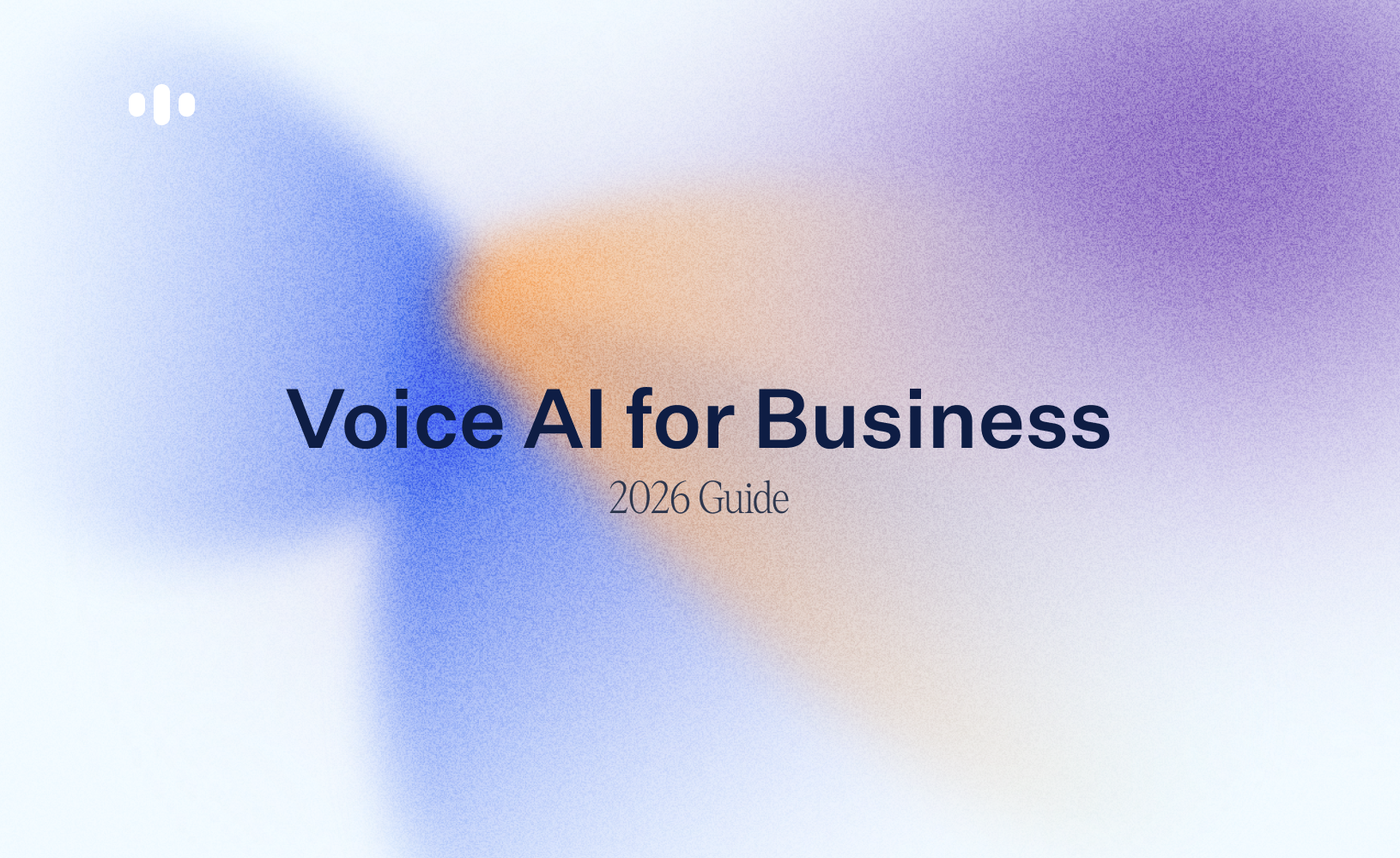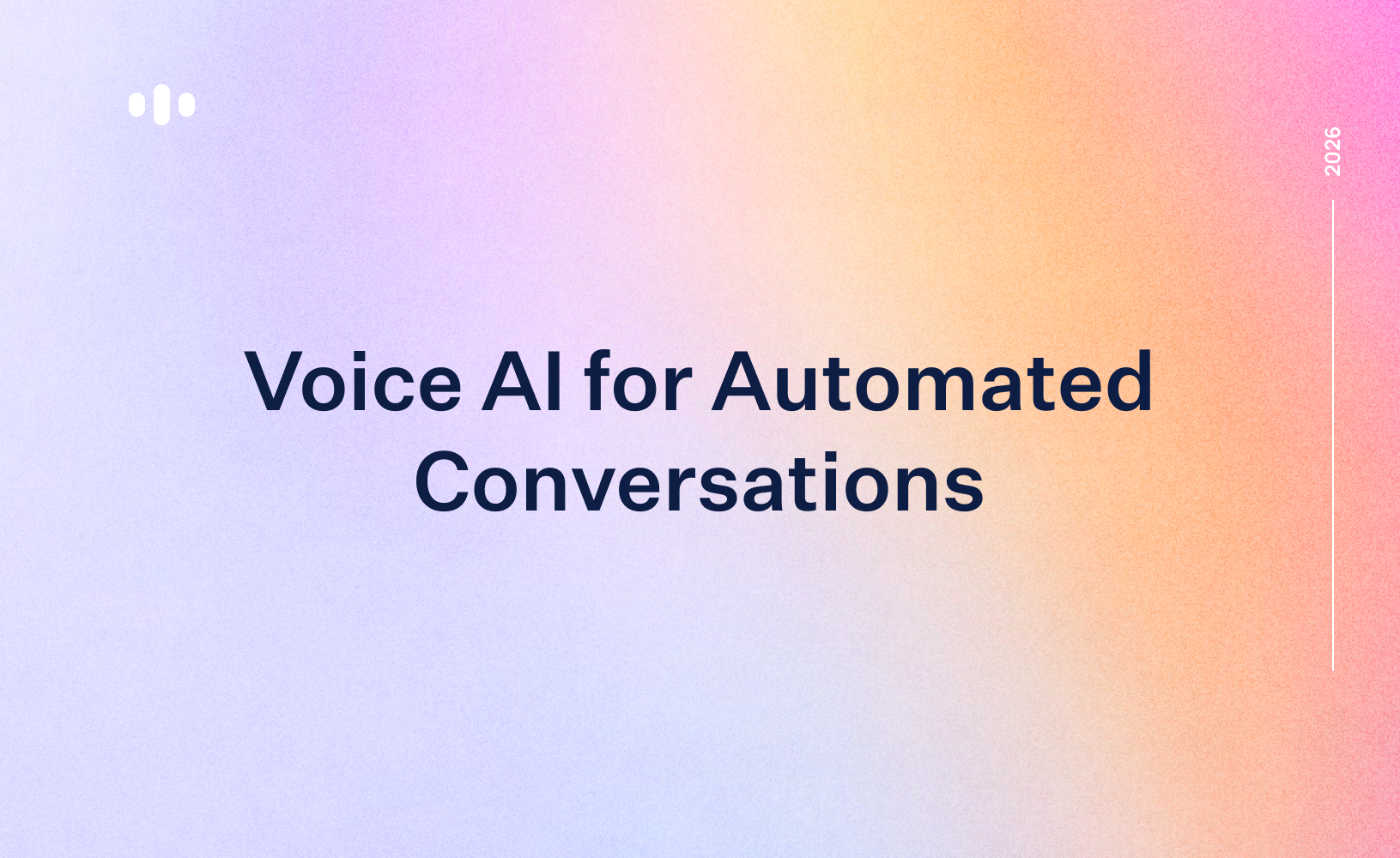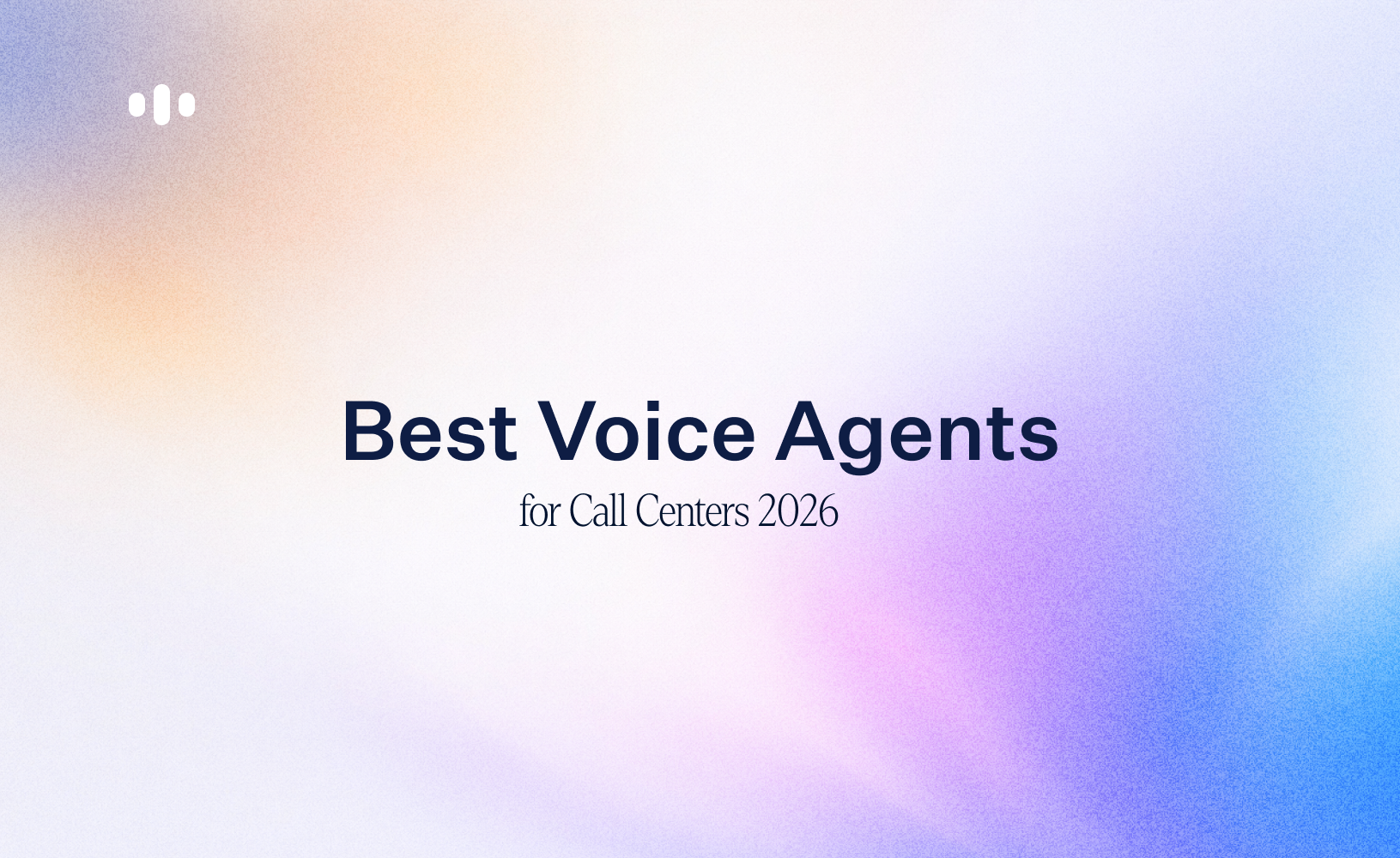Top 5 AI Call Platform Alternatives to Thoughtly for Enterprise AI Voice Agents (2025)

See how much your business could save by switching to AI-powered voice agents.
ROI Result
Total Human Agent Cost
AI Agent Cost
Estimated Savings
Industry-Specific Applications of AI Voice Agents
Successful AI voice implementation often depends on identifying high-value use cases that address specific industry challenges. The scenarios below demonstrate how various sectors can leverage this technology to improve customer experience while reducing operational costs. Consider how these examples might translate to your organization's unique requirements.
Healthcare Appointment Management
AI voice agents can handle appointment scheduling, reminders, and rescheduling while maintaining HIPAA compliance. AI voice agents can reduce appointment no-shows by up to 69% [9], saving clinics significant revenue.
Financial Services Customer Authentication
Secure, AI-powered verification processes can authenticate callers while reducing fraud risk and streamlining access to account information.
E-commerce Order Status and Returns
Automated order tracking and return initiation create frictionless customer experiences while reducing support volume.
SaaS Onboarding and Support
Guided product walkthroughs and tier-1 technical support via AI voice agents accelerate time-to-value for new customers.
How AI Voice Agents Work: Technical Overview
While technical details shouldn't drive your purchase decision, understanding the fundamental components of AI voice platforms helps evaluate vendor claims and assess implementation complexity. This knowledge enables more productive conversations with both vendors and internal IT stakeholders during your evaluation process.
Understanding the technical foundation of AI voice platforms helps evaluate their capabilities:
- Large Language Model (LLM) interprets caller intent and extracts key information with top models having 95%+ intent recognition accuracy [5]
- Text-to-Speech (TTS) technology converts responses into natural-sounding voice
- Conversation flow engines manage the dialogue structure and decision trees
- Integration layer connects with external systems (CRM, knowledge bases, etc.)
- Analytics engine captures performance data and conversation metrics
The most advanced platforms offer low-latency responses (under 500ms) and high accuracy in advanced conversation flow capabilities, creating conversations that feel natural rather than robotic.
FAQ About AI Voice Agent Platforms
Enterprise stakeholders typically share common concerns when evaluating AI voice solutions. The answers below address the most frequent questions that arise during the evaluation process, helping to align expectations across technical, operational, and business teams.
How do AI voice agents differ from traditional IVR systems?
Unlike menu-based IVR systems, AI voice agents use natural language processing to understand conversational inputs, allowing callers to speak naturally rather than navigating rigid menu options. This creates more efficient, human-like interactions.
Read more on how AI agents differ from IVR →
What security standards should enterprise AI voice platforms meet?
At minimum, enterprise AI voice platforms should maintain SOC 2 Type II compliance, GDPR readiness, and industry-specific certifications like HIPAA for healthcare or PCI for payment processing. Data encryption, access controls, and audit logging are also essential security features.
Can AI voice agents integrate with existing phone systems?
Yes, enterprise-grade AI voice platforms should offer flexible integration options including SIP trunk connections, existing PBX integration, cloud telephony interfaces, and API-based custom integrations. This allows organizations to preserve their existing telephony investments while adding AI capabilities.
Learn more about integrating AI voice agents into existing phone systems →
How long does implementation typically take?
Implementation timelines vary based on complexity and sophistication of platform, but most enterprise deployments follow this pattern:
- Basic implementation: 2-4 weeks
- Full integration with CRM and custom workflows: 4-8 weeks
- Advanced implementation with custom voice training: 8-12 weeks
Retell AI is built to supercharge production going live in days not weeks
What happens when the AI voice agent can't handle a call?
The most robust platforms offer sophisticated call escalation protocols, including:
- Real-time handoff to live agents with full context transfer
- Scheduled callbacks when agents become available
- Alternative channel suggestions (chat, email)
- Self-service options for simpler issues
Making the Strategic Choice for Your Enterprise
According to recent research from contact center industry analysts, the majority of enterprise contact centers plan to implement or expand their AI capabilities within the next two years. The question isn't whether to implement AI voice agents, but which platform best aligns with your specific needs.
Consider these final recommendations:
- Prioritize enterprise readiness over flashy features: uptime, security, and scalability form the foundation of successful deployments
- Evaluate voice quality through extended demos: natural-sounding voices significantly impact caller satisfaction
- Test integration depth with your specific tech stack: surface-level integrations often create operational friction
- Consider implementation support options: even the best technology requires skilled implementation
- Start with focused use cases rather than attempting to automate everything at once
The right AI voice agent platform should not only reduce operational costs but also enhance caller experience, providing measurable improvements across both efficiency and satisfaction metrics.
See How Retell AI Fits Into Your Voice Technology Strategy
Ready to explore how enterprise-grade AI voice agents can transform your call operations? Retell AI's solution engineers can demonstrate our platform's capabilities with your specific use cases and integration requirements.
Try for free or book a personalized demo to see how our AI voice agents can help you automate call operations while maintaining the human touch your customers expect.
Citations
[1] Gartner. (2025). Gartner Predicts Agentic AI Will Autonomously Resolve 80% of Common Customer Service Issues Without Human Intervention by 2029
[2] Grand View Research. (2024). Call Center AI Market Report
[3] Venture Magazine. (2025). AI Calling Cost Analysis — A Comprehensive Breakdown
[4] Cerebrium. (2025). Deploying a global scale, AI voice agent with 500ms latency
[5] Fluent AI. (2024). World’s first AI acoustic voice interface excels where conventional speech recognition falls short Multinational companies are turning to Fluent.ai for voice recognition
[6] Retell AI. (2025). Latency
[7] Bigly Sales. (2025). How AI Voice Cuts Average Handle Time by 25% in Call Centers
[8] Tupl. (2025). How AI Is Revolutionizing First Call Resolution (FCR) in Customer Service?
[9] Simbo.ai. (2024). The Role of AI in Enhancing Appointment Scheduling and Patient Reminder Systems for Improved Healthcare Outcomes
A Demo Phone Number From Retell Clinic Office





